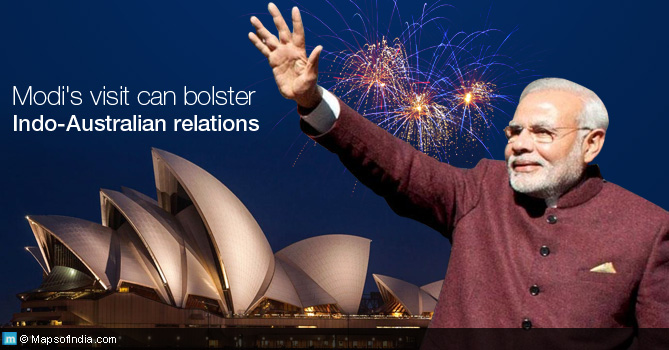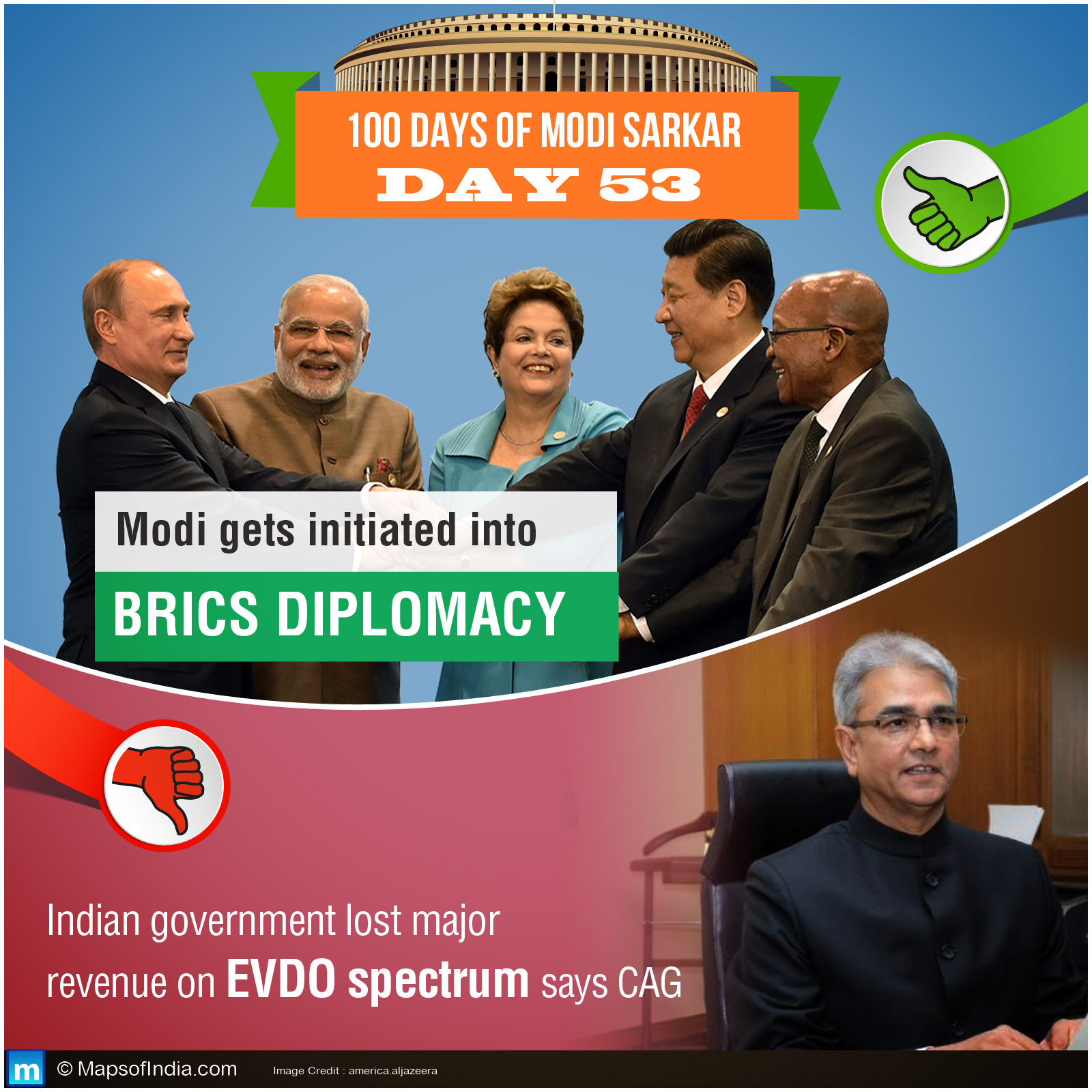Prime Minister Narendra Modi will visit Australia on November 15. Apart from attending G-20 summit in Brisbane, he will have a bilateral engagement with Australian leadership also. However, before undertaking his visit, he has sought ideas and suggestions from general public including native Australians regarding the way the trip could be turned into an important event.
“During my Australia visit in November, I would be attending a variety of programmes, including an interaction with the Indian community there. I want to hear ideas and thoughts from all of you, including friends in Australia and the Indian community there on my visit,” Modi tweeted. Thus, the message is clear that Modi who has consolidated his hold over the country’s politics and results of just concluded elections of Haryana and Maharashtra show it conclusively, would use his Australia visit as yet another opportunity to re-enact Madison Square-type magic. Given that the country of Kangaroos is home to a large number of Indian expatriates, such thinking could not be a weird one.
Then he is the first Indian Prime Minister to visit Australia since late Rajiv Gandhi’s visit in 1986. In that respect, every engagement that he will have in that country, including his address to the special joint sitting of the Australian Parliament, would in all likelihood, serve him an occasion to throw charm offensive on Australian law makers too.
Nonetheless, it would be G-20 summit where Modi’s leadership would be tested. Before it unfolds as the summit, Suresh Prabhu who was a Cabinet minister in the Atal Behari Vajpayee government, was recently sent in Canberra as India’s Sherpa. His task was to prepare the agenda for G-20 leaders; and this involved issues like development, infrastructure, climate change and energy. The forthcoming Brisbane action plan to be announced during the summit, will take into account all four issues. But, as per sources, it will be an economic issue wherein emphasis will be laid on taking new measures to boost growth and job creation.
An Indian PM’s first visit to Australia since 1986
For Prime Minister Narendra Modi, this summit is important as it will be first major multilateral forum where he will get a chance to interact with leaders from developed as well as developing nations. Yet, it will be a summit’s focus on increasing quality investments in infrastructure, and is what giving India a reason to be highly optimistic about the group and its agenda, especially when the government under Modi is pitching high for foreign investments for his pet projects involving smart cities, ports, seaports and highways.
If officials from the Ministry of Finance are to be believed, India requires more than $3 trillion to complete these projects. During Minister of State (Finance) Nirmala Sitharaman’s Australia visit, which she will undertake on November 12 for the G-20 Finance Ministers meet, India will showcase its plan for these projects, apart from taking up other issues, including trade liberalisation and sharing of tax information. In the last G-20 summit, the issue related to global taxation system in line with the requirements of the 21 century was raised.
Arguments made in favour of sharing of tax information among members of G-20 countries are that it helps in maintaining community and business trust in governments; it helps in maintaining information on taxpayers who have offshore investments; it helps in seeing that those who have offshore investments, are complying with domestic tax obligations or not. India is in favour of completing the formalities over the tax sharing information issue. In the just concluded G-20 Sherpa’s meeting, a brainstorming session on taxation was held and every country, according to sources, agreed that global tax rules have not been consistent with changes in the global business environment. In particular, the case was raised about multinational corporate houses which are not taxed the way they should be taxed. Besides, the issues that India want to project during the G-20 summit are – energy security, food security and financial inclusion.
India’s growing needs to be looked at during the visit
With regard to energy security, sources say, India’s overarching goal is to ensure affordable energy for various consumer segments. The country’s energy basket comprises of oil, gas, thermal and hydro power and also nuclear power which have hardly lived up to expectations. According to estimates made by the oil ministry, oil demands are particularly going to see a phenomenal rise from the current 700 million tonnes to 1,500 million tonnes by 2035. Power generation capacity which currently stands at 2,45,393.54 MW will have to be increased over 5 lac MW by 2020. But seeing the global overdrive for clean energy, India wants to latch on to energy generation through solar and wind power. Sources say, New Delhi will raise the issue of solar technology and its availability to developing nations.
In fact, India which is home to 2.97 million square kilometers of tropical and sub-tropical land and an average of 250-300 clear sunny days a year, has aimed to achieve 200,000 MW of solar generation capacity by 2050 from the current 3 MW. To meet this target, India needs huge investments. However, it will be food security and India’s unshakable stand that it can’t deny 40 per cent its poor nationals of their rights from getting cereals at highly subsidised rates, is what is going to see much talks during the forthcoming summit. This apart, India will raise as how under the ambitious ‘Jan Dhan Yojna’ millions of poor Indians are being brought under the ambit of the financial inclusion.
In a nutshell, it will be India and its newly elected Prime Minister who would be the centre of attraction during the two-day summit as every leader would like to know him from the close and his plans for the economic growth. As it has been paired with India-Australia bilateral engagement also, New Delhi and Canberra may raise the issue of China’s belligerence in the South China Sea. They may also raise the issue of joint and multilateral naval exercises in the Indian Ocean. Thus indications coming from the Raisina Hill show that it would be a visit which will be a closely watched affair for diplomatic and strategic community also.
Related Information:






